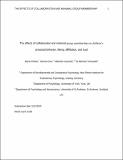Files in this item
The effects of collaboration and minimal-group membership on children's prosocial behavior, liking, affiliation, and trust
Item metadata
| dc.contributor.author | Plötner, Maria | |
| dc.contributor.author | Over, Harriet | |
| dc.contributor.author | Carpenter, Malinda | |
| dc.contributor.author | Tomasello, Michael | |
| dc.date.accessioned | 2016-12-24T00:32:12Z | |
| dc.date.available | 2016-12-24T00:32:12Z | |
| dc.date.issued | 2015-11 | |
| dc.identifier.citation | Plötner , M , Over , H , Carpenter , M & Tomasello , M 2015 , ' The effects of collaboration and minimal-group membership on children's prosocial behavior, liking, affiliation, and trust ' , Journal of Experimental Child Psychology , vol. 139 , pp. 161-173 . https://doi.org/10.1016/j.jecp.2015.05.008 | en |
| dc.identifier.issn | 0022-0965 | |
| dc.identifier.other | PURE: 189522050 | |
| dc.identifier.other | PURE UUID: 8c8ed925-a357-4025-b658-b878aff33f37 | |
| dc.identifier.other | Scopus: 84934981434 | |
| dc.identifier.other | WOS: 000359171500011 | |
| dc.identifier.other | ORCID: /0000-0003-3983-2034/work/64697959 | |
| dc.identifier.uri | https://hdl.handle.net/10023/10015 | |
| dc.description | The authors thank the Economic and Social Research Council–United Kingdom (ESRC) for supporting H. Over (Grant ES/K006702/1) | en |
| dc.description.abstract | Recent theoretical work has highlighted potential links between interpersonal collaboration and group membership in the evolution of human sociality. Here we compared the effects of collaboration and minimal-group membership on young children's prosocial behavior (i.e., helping and resource allocation), liking, affiliation, and trust. In a design that matched as closely as possible these two ways of connecting with others, we showed that 5-year-olds' behavior was affected similarly by collaboration and minimal-group membership; both increased children's preference for their partners on multiple dimensions and produced overall effects of a similar magnitude. In contrast, 3.5-year-olds did not have a strong preference for either collaborators or minimal in-group members. Thus, both collaboration and minimal-group membership are similarly effective in their influence on children's prosocial behavior and social preferences. | |
| dc.language.iso | eng | |
| dc.relation.ispartof | Journal of Experimental Child Psychology | en |
| dc.rights | Copyright © 2015 Elsevier Inc. All rights reserved. This work is made available online in accordance with the publisher’s policies. This is the author created, accepted version manuscript following peer review and may differ slightly from the final published version. The final published version of this work is available at: 10.1016/j.jecp.2015.05.008 | en |
| dc.subject | Affiliation | en |
| dc.subject | Collaboration | en |
| dc.subject | Cooperation | en |
| dc.subject | Developmental psychology | en |
| dc.subject | Minimal groups | en |
| dc.subject | Prosociality | en |
| dc.subject | Trust | en |
| dc.subject | BF Psychology | en |
| dc.subject | NDAS | en |
| dc.subject.lcc | BF | en |
| dc.title | The effects of collaboration and minimal-group membership on children's prosocial behavior, liking, affiliation, and trust | en |
| dc.type | Journal article | en |
| dc.description.version | Postprint | en |
| dc.contributor.institution | University of St Andrews. School of Psychology and Neuroscience | en |
| dc.contributor.institution | University of St Andrews. Centre for Social Learning & Cognitive Evolution | en |
| dc.identifier.doi | https://doi.org/10.1016/j.jecp.2015.05.008 | |
| dc.description.status | Peer reviewed | en |
| dc.date.embargoedUntil | 2016-12-23 |
This item appears in the following Collection(s)
Items in the St Andrews Research Repository are protected by copyright, with all rights reserved, unless otherwise indicated.

